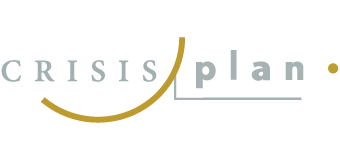This fall we successfully hosted an international conference, bringing together academics, researchers and practitioners to discuss lessons from current crisis management research to prepare institutions for threats. Panelists from sixteen countries joined online and in-person to debate current findings in the field and share their research, insights and experience from the Covid-19 pandemic and past crises.
All panels are now available to watch on our YouTube channel
The conference, titled, After the Deluge: How to Update our Institutions for Creeping Crises (October 27th – 29th, 2021, Leiden, The Netherlands), was organised with support from Leiden University, MSB and The Swedish Institute of International Affairs. The panelists contributed extensive discussions which have been recorded to share with the community of crisis management experts. The twelve panels provide valuable analysis for practitioners but also offer critical insights for policy research.
Within this project there will be more to come with our upcoming book, 25 Lessons for Crisis Leaders. More information is available at crisislessons.com.
The insights we have gained will make a strong contribution to Crisisplan’s ongoing work on improving safety and crisis response capacities through EU wide projects, such as STAMINA, a H2020 project focused on pandemic prediction and management.

SAPEA Report “Crisis Management in the EU”
The European Union is confronted with an increasing number of crises with growing complexity, causing suffering and other devastating consequences. Improving crisis management has become an essential issue for protecting and enhancing present and future wellbeing in the EU and globally.
In response to this challenge, the Scientific Advice Mechanism to the European Commission – consisting of the Group of Chief Scientific Advisors and SAPEA – and the European Group on Ethics in Science and New Technologies are presenting policy recommendations to improve crisis management frameworks.
Arjen Boin was one of the contributors to the evidence-based SAPEA report “Strategic crisis management in the EU”. The report provides a unique, interdisciplinary and comprehensive overview regarding the state of knowledge on strategic crisis management and the different ways in which this may be improved in the European Union. It can be found here.
The Scientific Opinion of the European Commission’s Group of Chief Scientific Advisors also presents details policy recommendations based on the evidence. An important gap in science advice for policy has been filled and this report can be the basis for much further academic work on the topic. More information is found through this link.
Now Available: Panel Recordings of the ‘After the Deluge’ Conference
This fall we successfully hosted an international conference, bringing together academics, researchers and practitioners to discuss lessons from current crisis management research to prepare institutions for threats. Panelists from sixteen countries joined online and in-person to debate current findings in the field and share their research, insights and experience from the Covid-19 pandemic and past crises.
All panels are now available to watch on our YouTube channel
The conference, titled, After the Deluge: How to Update our Institutions for Creeping Crises (October 27th – 29th, 2021, Leiden, The Netherlands), was organised with support from Leiden University, MSB and The Swedish Institute of International Affairs. The panelists contributed extensive discussions which have been recorded to share with the community of crisis management experts. The twelve panels provide valuable analysis for practitioners but also offer critical insights for policy research.
Within this project there will be more to come with our upcoming book, 25 Lessons for Crisis Leaders. More information is available at crisislessons.com.
The insights we have gained will make a strong contribution to Crisisplan’s ongoing work on improving safety and crisis response capacities through EU wide projects, such as STAMINA, a H2020 project focused on pandemic prediction and management.
EJSR Special Issue 2022: Governance of the Covid-19 Pandemic in Europe
The European Journal for Security Research is organizing a special issue on COVID-19, with guest editors Prof. Dr. Rahel Schomaker and Prof. Dr. Stefan Braum.
Have a look at the Call for Papers here .
Principled or pragmatic? The two approaches leaders can take during a drawn-out crisis
Political leaders can adopt two broad approaches in managing a protracted crisis like COVID-19. Some, like Boris Johnson, opt for a principled approach; others, like the Dutch government, take a pragmatic one.
The choice is not simple, say Arjen Boin (Leiden University) and Martin Lodge (LSE), and the best policy may be to combine elements of both. Read more here.
Crisisplan: Proud partner of the INTREPID project
Crisisplan is a proud partner in a very ambitious project:
INTREPID: Intelligent Toolkit for Reconnaissance and assessmEnt in Perilous InciDents.
INTREPID is an EU-funded project that aims to help first responders with the challenges they face when they arrive at complex and dangerous disaster zones. To further discover how INTREPID aims to provide first responders with a platform that will improve the 3D exploration and analysis of disaster areas, check out this video.
For more information, visit the website and follow the project’s updates on LinkedIn.
Announcing the crisis conference “After the Deluge” for this fall
Collecting the lessons learned for the management of creeping crises
New book (free access): Governing the Pandemic
The book Governing the Pandemic (authored by Arjen Boin, Allan McConnell and Paul ‘t Hart) analyzes how different countries handled the COVID-19 crisis. The authors formulate lessons for resilient response systems.
New book (free access): “Understanding the creeping crisis”
A new book on an intriguing phenomenon: the Creeping Crisis (with various case studies)
Call for Abstracts: PUPOL International Conference
We would like to invite you to the fifth PUPOL International Conference: ‘Leadership in Progress: New Avenues in Studying and Developing Public and Political Leadership‘ 16-17 April 2020 in The Hague.
Creeping Toward Crisis
Policymakers are often surprised by the sudden emergence of a crisis. In hindsight, it is then discovered that signals of the impending crises had been long present. They could have seen it coming, or so the idea goes. Where and how do these creeping crises develop? Can they be detected?